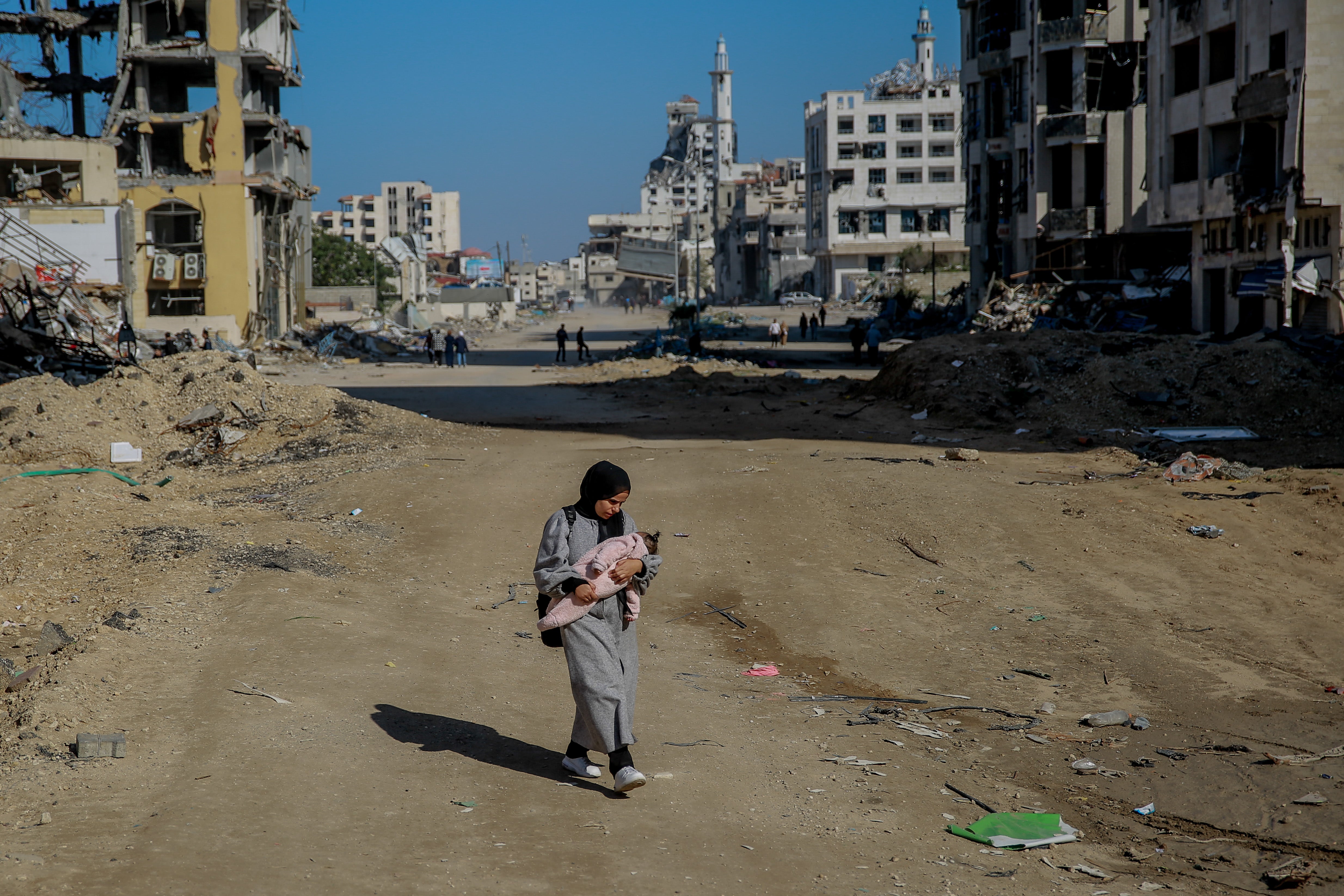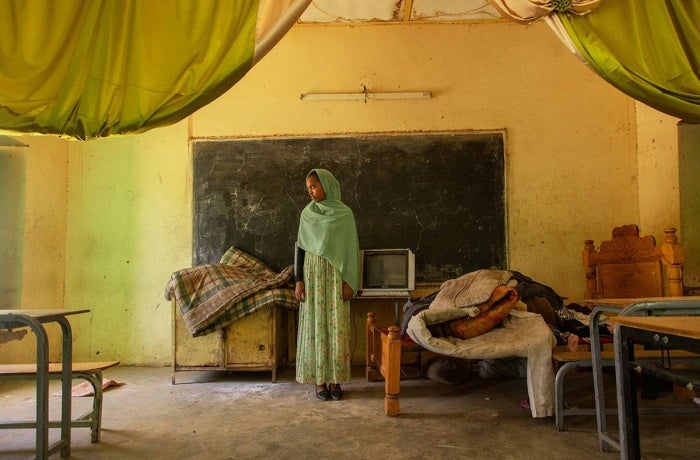‘Scared, exhausted, and expecting the worst’ – Women in Gaza describe humanitarian crisis
More than 24,620 Palestinians have been killed in the Gaza Strip and more than 1.9 million people have been displaced, including almost 1 million women and girls. The entire population of Gaza — roughly 2.2 million people — face acute food insecurity.
Those figures and more are presented in “Gender alert: The gendered impact of the crisis in Gaza”, published 19 January by UN Women, which shows how the crisis in Gaza is experienced differently by men and women, boys and girls, the elderly and the young.
“Now everything is lost, and the future is so uncertain,” one woman from Gaza City, who was displaced to Khan Younis, said in the alert. She added, “Most of all: will I ever go back home?”

UN Women has been working in the Occupied Palestinian Territory since 1997 to help women and girls achieve their social, economic, and political rights, while addressing their humanitarian needs. In the period from 2008 to 7 October 2023, the UN documented the killings of 6,542 Palestinian civilians in hostilities, with women and girls making up less than 14 per cent of that figure. However, since 7 October, women and children have constituted about 70 per cent of the region’s deaths.
Gaza’s only two women’s shelters, both in Gaza City, are now closed, and telecommunications and electricity blackouts severely restrict the ability to provide services remotely. The number of households where a widowed woman has the sole responsibility to feed, protect, and provide for her family may have surged by at least 3,000, as men have been killed throughout Gaza; those deaths may have also resulted in at least 10,000 children losing their fathers.
The only functional maternity hospital in northern Gaza expected to run out of fuel , with delivery of further fuel severely challenged by insecurity.
“Two weeks after the war started on my due date, I went to the hospital knowing that I was risking my life and that of my long-awaited baby”, said a woman quoted in the alert. “My doctor decided to use a private clinic that was not fully equipped as it was the only solution available at that time.”
“I risked my life and I hope that I didn’t bring my baby to this world for him to just be killed for no reason!” she added.
With acute food insecurity at unprecedented levels, women and girls are expected to be hit the hardest, as women tend to when access to food is restricted. Pregnant and lactating women are at even higher health and malnutrition risks, both for themselves and their babies.
Women’s rights organizations continue to operate despite the hostilities, but many staff members are themselves forcibly displaced, and the majority of their physical infrastructure has been destroyed. Ten out of twelve women’s organizations in the Gaza Strip reported being at least partly operational in November 2023.
UN Women has sought to address the crisis as part of its six-month response framework. Under that rubric, UN Women has co-chaired the national-level Gender in Humanitarian Action Working Group and the Prevention of Sexual Exploitation and Abuse Network, and has worked to coordinate the delivery of aid, ensuring that women’s needs are taken into account in the humanitarian response.
On the ground, through a partnership with the UN World Food Programme, UN Women has provided emergency food assistance to over 14,000 women-headed households, representing one-third of all women-headed households in Gaza.
UN Women has supported the distribution of 14,000 dignity kits, 2,300 winter clothes packages, 3,200 women’s kits, and 3,793 children’s kits in partnership with the Egyptian Red Crescent and the Jordanian Hashemite Charity Organization. With local partners in Gaza, UN Women also provided recreational activities for 2,500 children and mental health support services via mobile mental health clinics to 316 women and girls, as well as and 94 men and boys.
But such aid is far from sufficient. All organizations surveyed in the alert reported that their most pressing needs were additional funding, strengthened partnerships, and investments in safety and security. The displacement of nearly 2 million people has caused intense pressure on scarce food, energy, and water supplies. And as the war continues, individuals’ coping mechanisms are rapidly eroding.
“Many older people like us stayed behind and are left to our fate”, said a 72-year-old woman in Gaza City, quoted in the alert. “I am scared, exhausted, and expecting the worst. God will have mercy on us.”









